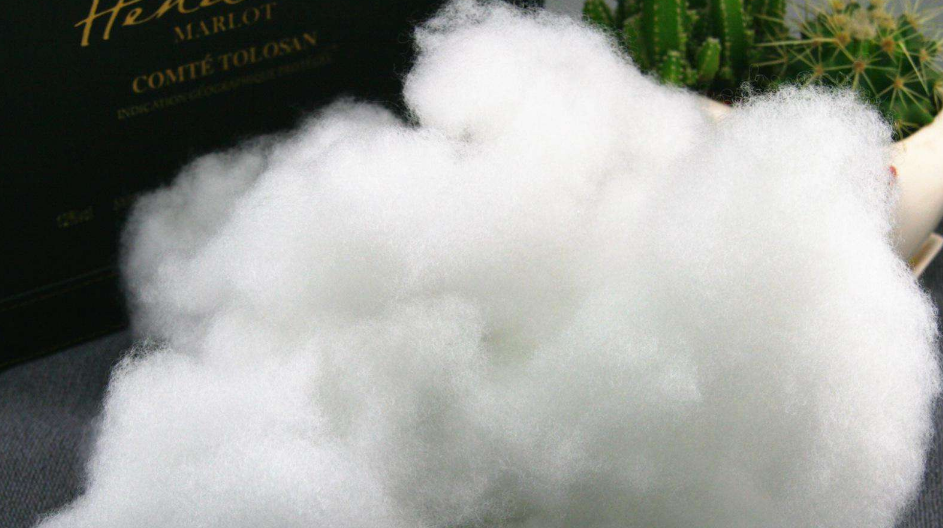The introduction of spinning chemical fiber oil and the development status of textile chemical fiber oil at home and abroad
1, Japan Matsumoto oil Company
Matsumoto Oil produces various fiber oils, polymer microspheres, hollow microspheres, various types of surfactants, various textile printing and dyeing AIDS, and environmental protection products. In recent years, Matsumoto Oil has developed another high-performance product: polymer thermal expansion microcapsules. Applications of this microcapsule range from wallpaper to automotive, coatings, textiles, three-dimensional inks and many other industries. Today, Matsumoto oil products are more widely used, such as information and electronics, automotive, precision instruments, civil engineering, construction, rubber (14595,185.00,1.28%), plastics (8508,-13.00,-0.15%), cosmetics, toiletrics, pollution control, agricultural industry, etc. Matsumoto products have a wide and far-reaching influence. Oil production is about 50,000 tons/year. Among them, about 22,550 tons of synthetic fiber oil.
2, Japan Takemoto oil Company
Founded in 1725, after nearly 300 years of development, in addition to the development of traditional edible oil, gradually in the chemical fiber industry, civil construction industry, pesticide industry, synthetic resin industry and other fields have achieved remarkable achievements. Oil production accounts for 50% of the application market in Japan.
3, in addition, Japan Sanyo Chemical oil Company, Mitsubishi oil Company, Japan Oil Company, Sanhao oil Company also produce oil agent.
4. Brynman Chemical Industries, UK
British ****** chemical enterprises, is also one of the ************ chemical companies. It was formed in December 1926 by the merger of the British Dye Company, Bruner-Mond Company, Nobel Industries Company and Union Alkali Company, with its headquarters in London. At first, it produced acids, alkalis, chlorine gas, synthetic ammonia, fertilizers, dyes, explosives, paints, leather clothes and non-ferrous metal products, and later added fibers, petrochemicals, plastics, pharmaceuticals, pesticides, catalysts, auxiliaries, solvents and specialty chemicals. The company began to produce polymethyl methacrylate (plexiglass) in 1931, produced phthalocyanine blue dye in 1934, developed high pressure vapor phase method of low density polyethylene and put into production in 1939, invented polyester fiber in 1941, put into industrial production in the early 1950s, and produced 66 66 insecticide in 1945. In 1956, the first reactive dye was produced. In 1966, the low pressure method was developed to synthesize methanol. In the mid-1970s, a series of pyrethroid varieties were created in ******. In 1983, the company had more than 400 branches and more than ten associated companies in various places, with a total turnover of 11.714 billion US dollars, ranking fifth in ******200 large enterprise chemical companies, and the output value accounted for about 1/3 of the total output value of British chemical industry.
5. UK Vic Company
Is a British company with 175 years of history, specialized in the manufacture of textile auxiliaries ****** technology company. Its products are marketed in ****** countries. Since its inception in 1828, the great role it has played in promoting the global textile industry is precisely its consistent pursuit of continuous technical research, complete product quality, and careful after-sales service since its inception.

6. Henkel
Henkel is the fourth largest chemical company in Germany, producing a variety of filament oils and a variety of POY-DTY oils. It is an international professional group in the field of applied chemistry, ****** one of the top 500, with more than 330 branches distributed in more than 60 countries and regions around the world. At present, Henkel Group produces more than 10,000 products worldwide, which are closely related to people's lives. By product category, Henkel is divided into six business units: Chemical Products, Surface Treatment Technology, Industrial and residential adhesives, Cosmetics and Beauty Products, household detergents and cleaners, Industrial and institutional hygiene products.
7. German BASF
The world's leading chemical company. The company's products range from chemicals, plastics, specialty chemicals, agricultural products, fine chemicals to crude oil and natural gas.
8. Stohausen, Germany
The ****** metal complexer Solopol ZF developed by the company is a sugar-based biodegradable polymer complexer, which can be combined with metals, calcium and magnesium in cotton, and can be used as an alternative to the currently used metal complexers with poor biodegradability, and is also a chelating dispersant with excellent dispersion ability.
9. Germany Schill Seilacher (referred to as Germany SS), Germany Daco and Germany Sima, Germany ****** chemical fiber oil production enterprises
Schill + Seilacher, headquartered in Burblingen, Germany, is a supplier of specialty chemicals to ************ for the paper and leather industries, the synthetic fiber and textile industries, the rubber and latex industries and many other industrial sectors. Schill + Seilacher serves the global textile industry by offering a range of specialized spinning oils and finishing AIDS for man-made fibers. In the field of nonwovens (spunbond and staple fibers), Schill + Seilacher offers a range of additives to create high added value for nonwovens products. Nonwovens finished with Schill +Seilacher chemicals are widely used in baby diapers, filter products, medical curtains, food packaging, etc.
- ABB
- General Electric
- EMERSON
- Honeywell
- HIMA
- ALSTOM
- Rolls-Royce
- MOTOROLA
- Rockwell
- Siemens
- Woodward
- YOKOGAWA
- FOXBORO
- KOLLMORGEN
- MOOG
- KB
- YAMAHA
- BENDER
- TEKTRONIX
- Westinghouse
- AMAT
- AB
- XYCOM
- Yaskawa
- B&R
- Schneider
- Kongsberg
- NI
- WATLOW
- ProSoft
- SEW
- ADVANCED
- Reliance
- TRICONEX
- METSO
- MAN
- Advantest
- STUDER
- KONGSBERG
- DANAHER MOTION
- Bently
- Galil
- EATON
- MOLEX
- DEIF
- B&W
- ZYGO
- Aerotech
- DANFOSS
- Beijer
- Moxa
- Rexroth
- Johnson
- WAGO
- TOSHIBA
- BMCM
- SMC
- HITACHI
- HIRSCHMANN
- Application field
- XP POWER
- CTI
- TRICON
- STOBER
- Thinklogical
- Horner Automation
- Meggitt
- Fanuc
- Baldor
- SHINKAWA
- Other Brands




































































































































